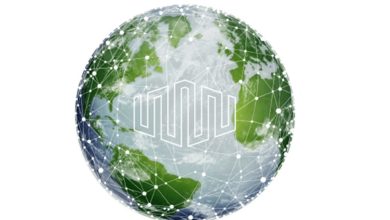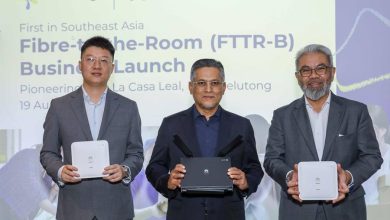
Six out of 10 companies in Asia are overwhelmed by the amount of data they manage and 73% are concerned their current infrastructure will be unable to scale to meet upcoming demands, leaving them exposed to security challenges, according to a new global survey from Hitachi Vantara, the modern infrastructure, data management and digital solutions subsidiary of Hitachi, Ltd. (TSE: 6501). The Hitachi Vantara Modern Data Infrastructure Dynamics Report also revealed that most companies expect their data needs to nearly double in the next two years, complicating efforts to protect and manage the rapid growth of data in an actionable and sustainable way.
Click here to download the Hitachi Vantara Modern Data Infrastructure Dynamics Report
The report surveyed 1,288 C-level executives and IT decision-makers from across the globe, including 344 in Asia (Singapore, Indonesia, India), to quantify the extent to which organizations are struggling to manage their data infrastructure in a secure and sustainable way. Key Asia findings include:
- Leaders in the region say that data is their most valuable asset but are concerned about the security and resilience of their data infrastructure, with 70% of leaders concerned they cannot detect a data breach in time to protect their data.
- 73% of leaders are concerned over whether their organization’s data infrastructure is resilient enough to recover data from ransomware attacks.
- 23% of respondents admitted that important data was not backed up and 33% had experienced data inaccessibility due to storage outages.
- 77% of IT leaders currently measure their data center’s energy consumption; however, 32% acknowledged that their data infrastructure uses too much energy, and more than half (52%) admitted their sustainability policies do not address the impact of storing unused data.
“The explosion in data volumes and the lack of the right data management infrastructure can lead to serious security and sustainability implications for companies in Asia. In just the first quarter of 2023, APAC witnessed the highest year-over-year increase in weekly cyberattacks, which reflects the region’s weaknesses in the areas of cybersecurity and data protection. In the next two years, most companies expect their data needs to nearly double and to be overwhelmed by the need to manage their data efficiently. This underscores the urgent need for advanced and modernized data infrastructure for better data protection and management,” said Joe Ong, Vice President and General Manager, ASEAN, Hitachi Vantara.
Furthermore, as more data is being stored, data centers will consume more energy and increase the carbon footprint of organizations. This could impact companies’ compliance with ESG standards and their ability to meet their ESG goals, which can affect multiple facets of their business, including retaining customer loyalty and reducing operating costs.
“To meet the demands of the modern enterprise, the modernization of today’s data infrastructures must involve state-of-the-art platforms that not only provide greater speed, reliability, and protection of data, but also require significantly less space and energy requirements, so that businesses can gain more value from their data while also reducing their carbon footprint at the same time. Organizations that are proactive today in prioritizing these critical areas will have a significant advantage in the market in the years to come,” added Joe.
A Hybrid Cloud World
The study also shed light on the future of data storage, with the hybrid cloud model leveraging a mix of public/private cloud, co-location and on-premises expected to persist. For Asia business leaders, the study found that data was stored in an already established hybrid cloud, with percentages of data center workloads split almost evenly among the private cloud (25%), public cloud (27%), on-premises (27%), and co-located/managed services (19%). By 2025, On-prem is expected to drop to 24%, while public cloud is expected to rise to 29%.
The role of third-party technology vendors
The results of the study also indicate most organizations recognize the importance of working with third-party vendors for security, storage, and application services. Among the leaders surveyed in Asia, 50% said they needed the most help improving cybersecurity, and 77% want to see data infrastructure solutions providers use their expertise to actively aid in protecting the environment. With the help of third-party vendors, companies can implement a deliberate strategy to propel their organizations toward becoming data-driven, unlocking new opportunities for growth and success.
For more information about Hitachi Vantara’s storage portfolio, visit.
https://www.hitachivantara.com/en-us/products/data-storage.html
“The challenge for companies in Asia in 2023 and beyond is finding the right balance between scalability, sustainability, and security,” said Joe. “With growing multi-cloud complexity, Asian leaders need to ensure data systems are working for them and not the other way around. One way for organizations to meet their sustainability and resilience goals is to work with the right technology solution partners. This would enable them to cut down on carbon emissions in a coordinated effort, and better mitigate the security challenges that come with the explosion in data growth. In doing so, this would increase the resiliency and reliability of their data infrastructure with the use of modern data solutions.”




